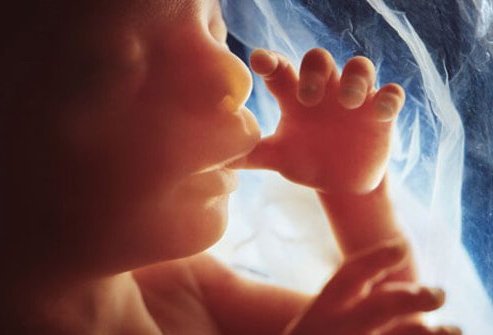WASHINGTON (BP) — A silver lining has appeared for pro-life advocates in the U.S. Supreme Court’s otherwise disappointing decision in June regarding the protection of women who undergo abortions.
The Eighth Circuit Court of Appeals in St. Louis overturned Aug. 7 a federal judge’s ruling that had blocked enforcement of four pro-life laws in Arkansas. In doing so, the three-judge panel based its decision on a concurring opinion by Chief Justice John Roberts in the high court’s June 29 ruling that struck down a Louisiana law designed to protect the lives and health of women by requiring hospital admitting privileges for doctors who perform abortions.
In the Supreme Court’s 5-4 decision, Roberts agreed with the four-justice liberal wing in the judgment but not in its reasoning. The chief justice said the proper analysis under the 1992 Planned Parenthood v. Casey opinion is “whether the law poses ‘a substantial obstacle’ or ‘substantial burden, not whether benefits outweighed burdens,’” the Eighth Circuit panel said. The other four justices in the majority judgment endorsed the benefits-and-burdens standard the high court offered in the 2016 Whole Woman’s Health v. Hellerstedt ruling, which invalidated a Texas admitting privileges law.
The Eighth Circuit panel ruled Roberts’ concurring opinion controlled its consideration of the lower-court injunction and returned the judicial standard regarding pro-life laws to the one articulated in the Casey decision. A ban on dismemberment abortions was among the Arkansas laws the Eighth Circuit returned to federal court for reconsideration under its ruling.
Southern Baptist ethicist Russell Moore said the Eighth Circuit’s decision “should encourage all of us to continue to advocate for the most vulnerable among us and to continue to minister to children in peril and women in crisis.”
“States should not be prevented by courts from protecting the lives and health of all persons, including preborn children and their mothers,” said Moore, president of the Ethics & Religious Liberty Commission, in comments for Baptist Press. “To say the very least, no state should be stopped from common-sense regulation of the abortion industry.”
Katie Glenn, government affairs counsel at Americans United for Life (AUL), said Roberts’ opinion basically invalidated the Hellerstedt test and “opened the door for lots of health-and-safety regulations to stand up.”
The Eighth Circuit’s ruling is the “first time we’re seeing a circuit court take his concurring decision and apply it,” Glenn said. The Eighth Circuit said the Hellerstedt test is “no longer what’s going to apply. We’re going back to the older test, and under the older test [the Arkansas] laws very well might stand up,” she said.
The Hellerstedt test called for a “very ambiguous benefits-burdens analysis” in which judges could strike down laws because they did not see a benefit, Glenn said. State legislators would often ask her, “‘Are there any health-and-safety laws that could stand up under the Hellerstedt test?’ And my answer is, ‘Well, yes, but it depends on your judge,’ which is not very good lawmaking,” she said.
The Casey test is “much more favorable for lawmakers; it’s much more favorable for pro-lifers,” Glenn said, adding she hopes they can “get lawmakers to feel confident that they can pass good pro-life laws that will stand up in court.”
The 1992 Casey opinion — which found a law could not impose an “undue burden” on a woman’s right to abort her child — affirmed the 1973 Roe v. Wade decision legalizing abortion while allowing states to regulate aspects of the practice to protect the lives and health of women.
The four laws enacted in 2017, according to the Family Council of Arkansas:
— Prohibit some abortion procedures performed typically in the second trimester that involve the dismemberment of unborn children.
— Ban abortions based on the sex of the child and require doctors to request the woman’s medical record regarding her pregnancy history.
— Strengthen reporting requirements for abortions performed on girls under the age of 17.
— Bar research on aborted babies and require humane disposal of their remains.
The National Right to Life Committee (NRLC) expressed its belief the dismemberment ban “will prevail” under the Casey standard. Twelve states have enacted prohibitions on dismemberment abortions, according to NRLC.
“We know these laws will protect the lives of unborn children and spare unborn babies from being brutally killed by dismemberment abortion or targeted because of having a disability,” NRLC President Carol Tobias said.
In 2019, 355 unborn children between 12 and 19 weeks were victims of dismemberment abortions, according to Arkansas Right to Life.
Moore and other pro-life leaders expressed deep disappointment with the majority ruling in the high court’s June decision invalidating the Louisiana law, which mandated admitting privileges for a physician at a hospital within 30 miles of a facility where he or she performs an abortion.

